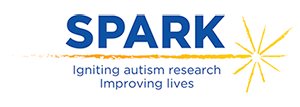Carolina joins launch of SPARK, nation’s largest autism research study

The University of North Carolina at Chapel Hill today helped launch SPARK, a research initiative designed to become the largest genetic research study for autism ever undertaken in the United States. The historic nationwide project will collect information and DNA from 50,000 individuals with autism — and their families — to better understand the causes of this condition and help usher in an era for personalized medicine and targeted treatment for people on the autism spectrum.
SPARK, sponsored by the Simons Foundation Autism Research Initiative (SFARI), is led locally by Drs. Joseph Piven, Gabriel Dichter and their team at UNC-Chapel Hill, which is one of 21 leading research institutions across the country chosen by SFARI to assist with recruitment.
“The initiative sets in motion an era of personalized medicine for every person with this condition,” said Piven, director of the Carolina Institute of Developmental Disorders and the Thomas E. Castelloe Distinguished Professor of Psychiatry, Pediatrics and Psychology. “It not only aims to collect an enormous amount of genomic data, but to link that data to guide targeted treatment research based on a patient’s genetic analysis. It’s truly a historic moment in this field and provides our team with an unprecedented resource that could help thousands of families in North Carolina and beyond.”
Piven and Dichter are no strangers to this kind of work. For more than 15 years, they have been building a research registry of families with at least one child with autism. This registry is a partnership between the CIDD NICHD-funded Intellectual and Developmental Disabilities Research Center and the UNC TEACCH Autism Program.
These North Carolina families – now more than 6,000 strong – have made it possible for UNC-Chapel Hill researchers to deepen their understanding of this complex condition and provide numerous intervention strategies, support systems and diagnostic tools. Piven and Dichter’s team will now tap into that registry to recruit these families, while also working to find other families interested in partaking in this historic endeavor.
To date, approximately 50 genes have been identified that almost certainly play a role in autism, and scientists estimate that an additional 300 or more are involved. By studying these genes, the biological consequences of these genes and how they interact with environmental factors, researchers can better understand the condition’s causes, and link them to the spectrum of symptoms, skills and challenges of those affected.
“No two children with autism are the same, but the way we try to help kids now is with a one-size-fits-all approach and then see what works best,” said Dichter, associate professor of psychiatry and psychology & neuroscience at UNC-Chapel Hill. “The SPARK initiative offers the first opportunity to understand autism genetics in a way that will allow us, in the future, to match a person’s specific genetic profile with a specific treatment plan. That is the ultimate goal of this project and we are indebted to the Simons Foundation and SFARI for making it possible.”
Originally published in UNC Campus Updates.
- Created on .